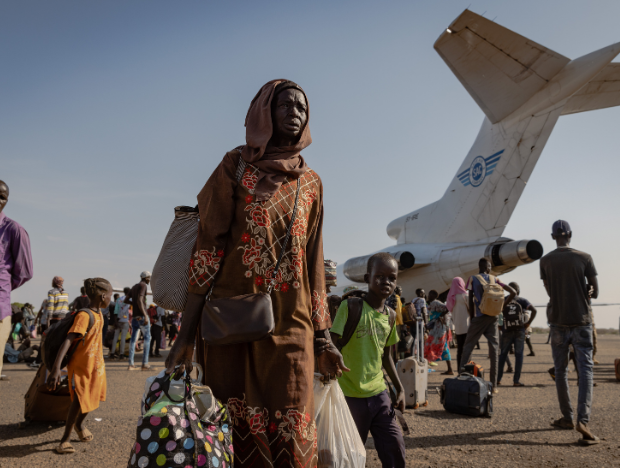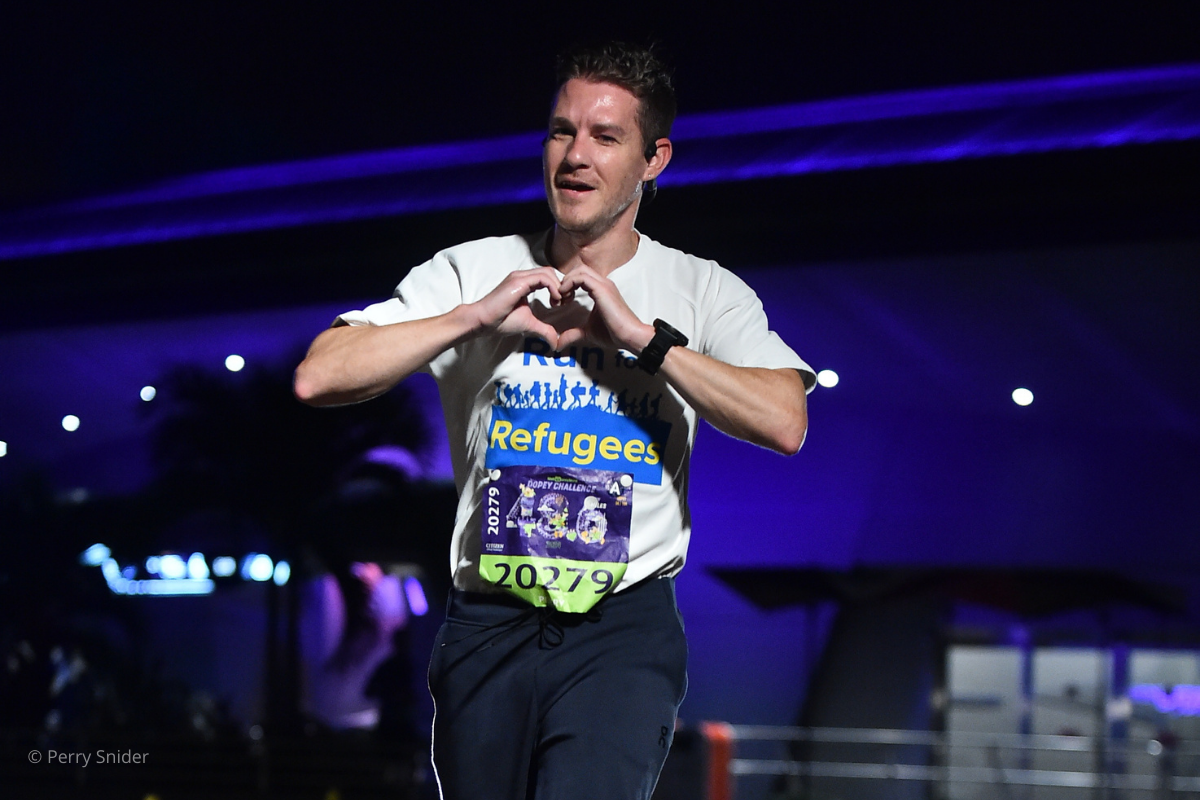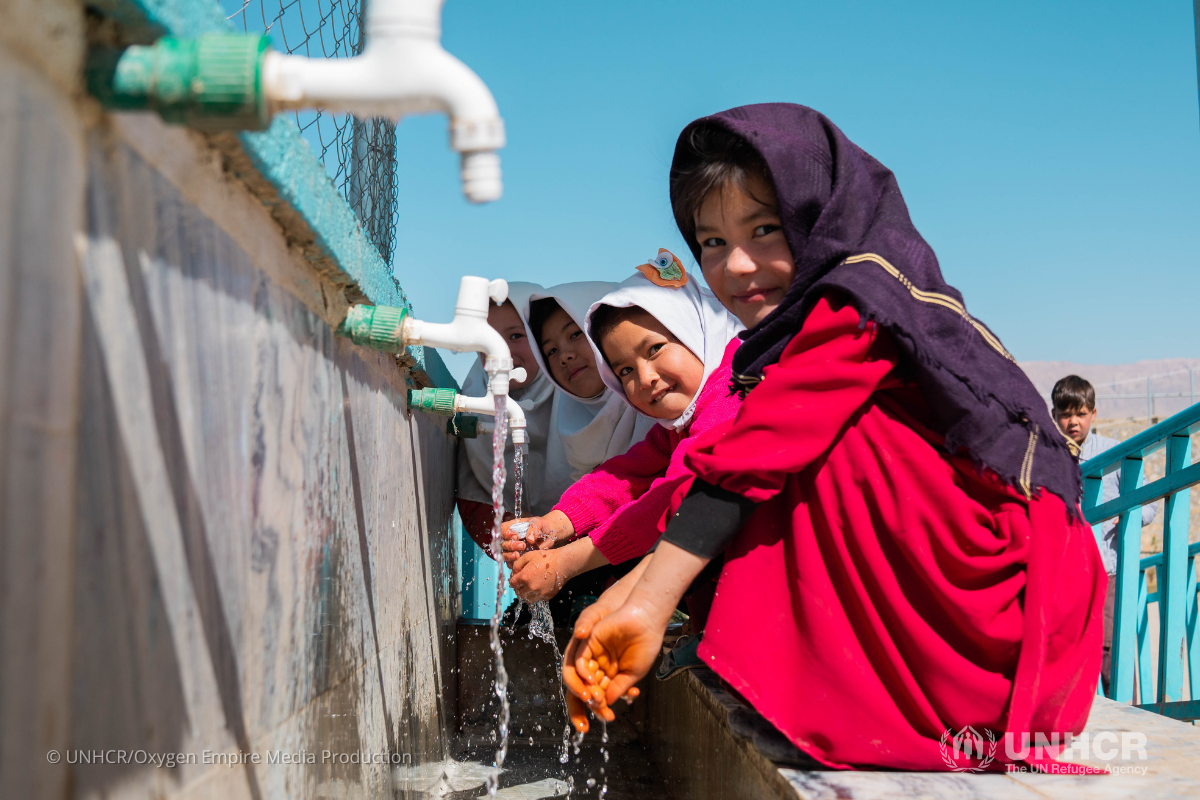American aid worker on the frontlines of coronavirus response in Colombia
Besem Obenson is UNHCR’s Head of Sub Office-Medellín in Colombia. Originally from Columbus, Ohio, she has worked for the UN Refugee Agency in South America for more than a decade. We recently spoke with Besem to learn more about how the coronavirus pandemic is impacting her work in Medellín and hear how UNHCR is responding.
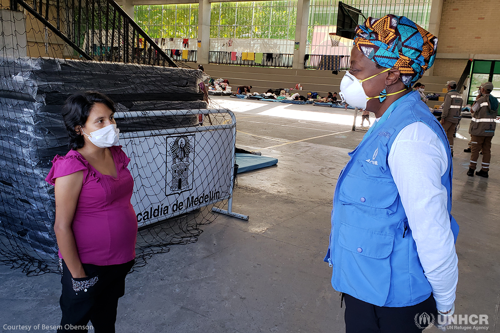
“We face emergencies all the time, displacements and large influxes of people,” explains Besem Obenson, UNHCR Head of Sub Office in Medellín, Colombia. “But how do you provide services when we can't see and meet with people because of the virus? Refugees can't come to our offices. We can't go to the communities.”
More than 4.5 million Venezuelans have fled the country since 2014 due in part to extreme shortage and access to basic goods and services and lack of economic opportunity. Hundreds of thousands have found safety in Colombia.
Before a countrywide quarantine to stop the spread of the coronavirus was implemented, Besem’s team was active throughout Medellín. In response to the growing needs of Venezuelan refugees, UNHCR opened a more easily accessible office in a city center shopping mall as well as expanded operations in neighborhoods where refugees found shelter.
The quarantine has required her team to shift gears and embrace a more flexible response to protect refugees. The Medellín office recently increased staff at its refugee call center and has widened its use of cash assistance in coordination with the Mayor’s office and other international NGO’s.
“Getting people cash helps pay rent, buy food and allows [refugees] to shelter in place,” says Besem. The use of cash assistance in Medellín during the pandemic builds on the already successful “graduation model.” At its core, the graduation model is a livelihoods program that helps refugees more fully integrate into their new communities. Refugees are connected to job and skills training and receive financial support while finding stability in their new homes.
“A lot of what we do is long-term planning and response,” says Besem. “How do people get jobs, how do they get more integrated into their new community.”
But for many Venezuelan families in Medellín, the pandemic has put all long-term plans on hold.
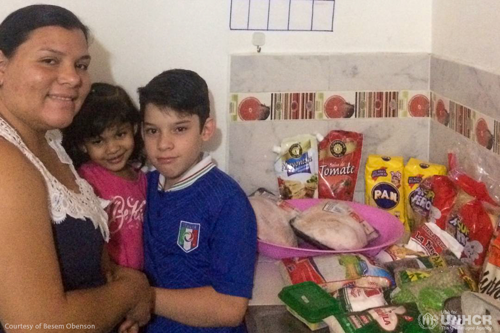
“Last October Carmen arrived in Medellín with her husband and two kids, her older son arrived in June and got a job cutting hair,” Besem shares. With money from the older son’s job, Carmen rented a small one-bedroom apartment for the family. UNHCR identified Carmen to participate in the graduation model and in January 2020, the family began receiving support through the program. Her children were registered for school, Carmen and her husband were working – there was a great deal to celebrate and the future looked hopeful.
But then came the pandemic and the quarantine.
Carmen, her husband and her son were soon out of work and the kids were out of school. To try and make ends meet, the family started selling off the few personal possessions they owned – they were desperate and feared losing their apartment.
Two weeks later, the family received lifesaving cash assistance from UNHCR.
“She got two months’ worth of cash assistance, she almost fainted,” Besem recalls emotionally. “She paid her rent for two months, she bought food, and then she shared it with her neighbors, some of whom are Venezuelan and Colombian,” Besem continues. “They made a giant pot of beans. One neighbor brought onions another brought what they had and then you have food for days.”
Soon after receiving cash assistance, the family received another bit of good news – Carmen’s husband got a job making face masks.
Paying rent and finding employment is the kind of “silver lining” Besem says all refugees are looking for.
Here’s how you can help…
The UN Refugee Agency relies on generous supporters so that people like Besem can do their lifesaving work. Please become a monthly donor — it’s the most effective and efficient way for you to help our world's most vulnerable people. Join your fellow caring Americans by making your first monthly gift today.
